-
 Bitcoin
Bitcoin $82,243.9788
-1.72% -
 Ethereum
Ethereum $1,815.0602
-3.45% -
 Tether USDt
Tether USDt $0.9997
0.05% -
 XRP
XRP $2.1193
-2.63% -
 BNB
BNB $602.8904
-2.82% -
 Solana
Solana $124.6560
-3.55% -
 USDC
USDC $1.0000
0.01% -
 Dogecoin
Dogecoin $0.1682
-6.49% -
 Cardano
Cardano $0.6683
-4.08% -
 TRON
TRON $0.2338
0.17% -
 Toncoin
Toncoin $3.7256
-3.10% -
 UNUS SED LEO
UNUS SED LEO $9.6044
-1.08% -
 Chainlink
Chainlink $13.4696
-4.61% -
 Avalanche
Avalanche $19.7390
-0.66% -
 Stellar
Stellar $0.2651
-2.43% -
 Shiba Inu
Shiba Inu $0.0...01256
-4.79% -
 Sui
Sui $2.2696
-9.63% -
 Hedera
Hedera $0.1698
-6.00% -
 Litecoin
Litecoin $85.1544
-1.64% -
 Polkadot
Polkadot $4.0397
-5.74% -
 MANTRA
MANTRA $6.2568
-0.68% -
 Bitcoin Cash
Bitcoin Cash $300.7966
-2.01% -
 Bitget Token
Bitget Token $4.6030
-3.47% -
 Pi
Pi $0.8036
-2.61% -
 Dai
Dai $1.0000
0.02% -
 Ethena USDe
Ethena USDe $0.9997
0.08% -
 Hyperliquid
Hyperliquid $12.7156
-3.83% -
 Monero
Monero $213.5470
-1.23% -
 Uniswap
Uniswap $5.9143
-2.98% -
 Aptos
Aptos $5.1719
-6.59%
How do I set a transaction limit in Trust Wallet?
Trust Wallet lacks built-in transaction limits due to crypto's decentralized nature, but users can manage spending through budgeting, separate wallets, and external apps.
Mar 27, 2025 at 03:50 am
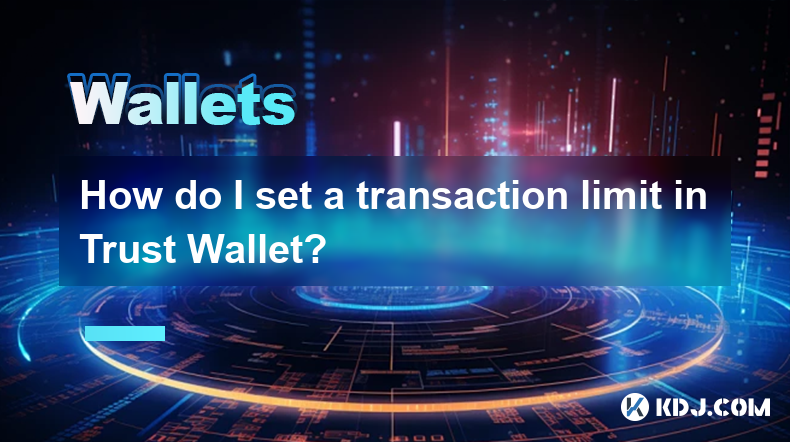
Trust Wallet, a popular mobile cryptocurrency wallet, doesn't offer a built-in feature to directly set transaction limits in the way some banking apps might. This is primarily because of the decentralized nature of cryptocurrencies. There's no central authority controlling transactions like there is with traditional banks. However, you can employ several strategies to effectively manage and limit your spending within the app.
Understanding Transaction Limits in the Context of Trust Wallet
The absence of a direct transaction limit setting in Trust Wallet necessitates a proactive approach to managing your spending. Instead of a built-in limit, you need to implement control mechanisms yourself. This involves careful planning and utilizing features within Trust Wallet and external tools to achieve the desired level of transaction control. Remember, security and responsible spending are paramount when dealing with cryptocurrencies.
Methods to Manage Your Spending in Trust Wallet
One of the most effective ways to manage your spending is through careful budgeting and tracking. Before initiating any transaction, confirm you have sufficient funds and that the transaction aligns with your budget. Trust Wallet provides clear transaction details, including fees, so you can accurately predict the total cost. Always double-check the recipient address before confirming any transaction to avoid irreversible losses.
Use a Separate Wallet for Smaller Transactions: Create a separate wallet within Trust Wallet or even a completely different wallet for smaller, everyday transactions. This isolates your main holdings from smaller purchases, providing an inherent limit to the amount you can spend from your primary wallet.
Set Spending Budgets in External Apps: Numerous budgeting apps allow you to track your cryptocurrency spending alongside traditional finances. These apps can send notifications or alerts when you're approaching your predefined spending limit, offering a form of external transaction control. This requires manual input of your Trust Wallet transactions, but provides valuable oversight.
Utilize Hardware Wallets for High-Value Holdings: For larger sums of cryptocurrency, consider using a hardware wallet. These offer enhanced security and require physical confirmation for every transaction, acting as a natural deterrent to impulsive spending. Hardware wallets integrate with Trust Wallet in some cases.
Regularly Review Your Transaction History: Trust Wallet provides a detailed history of all your transactions. Regularly reviewing this history allows you to monitor your spending habits and ensure they align with your financial goals. This helps in identifying potential overspending patterns.
Enable Two-Factor Authentication (2FA): While not directly a transaction limit, enabling 2FA adds a significant layer of security, making unauthorized transactions far more difficult. This safeguards your funds from potential theft, preventing unwanted transactions.
Avoid Impulse Purchases: The decentralized nature of cryptocurrencies can lead to impulsive buying. Take your time to research before making any purchase. Avoid making hasty decisions, especially with larger amounts of cryptocurrency. Consider waiting a day or two before finalizing significant transactions.
Addressing Security Concerns
While Trust Wallet offers a secure environment, it's crucial to understand and mitigate potential risks. Never share your seed phrase or private keys with anyone. Be cautious of phishing scams and only download the Trust Wallet app from official app stores. Regularly update the app to benefit from the latest security patches. Remember, you are solely responsible for the security of your cryptocurrency holdings.
Frequently Asked Questions
Q: Can I set a daily spending limit in Trust Wallet?
A: No, Trust Wallet does not have a built-in feature to set daily or any other type of spending limit. You need to employ alternative methods like budgeting apps or separating your funds into different wallets.
Q: What happens if I exceed my self-imposed spending limit?
A: There are no automatic consequences. Exceeding your self-imposed limit is simply a matter of exceeding your own financial plan. It’s crucial to adhere to your budget to avoid financial difficulties.
Q: Is Trust Wallet secure enough to hold large amounts of cryptocurrency?
A: Trust Wallet employs robust security measures, but no system is completely impenetrable. For extremely large holdings, consider using a hardware wallet in conjunction with Trust Wallet for added security. Always practice good security habits.
Q: Can I link Trust Wallet to my bank account to set spending limits?
A: No, Trust Wallet is a cryptocurrency wallet and doesn't directly integrate with bank accounts for spending limits. Any spending limit would need to be managed separately through budgeting apps or personal discipline.
Q: If I lose my phone, will I lose my cryptocurrency?
A: Losing your phone can be problematic. Having a backup of your seed phrase is crucial. Without it, recovering your cryptocurrency may be impossible. Never store your seed phrase digitally; write it down and store it securely.
Q: What if I accidentally send cryptocurrency to the wrong address?
A: Cryptocurrency transactions are generally irreversible. Once sent, recovering funds from the wrong address is extremely difficult, if not impossible. Always double-check the recipient address before confirming any transaction. This is a critical step to prevent irreversible loss of funds.
Disclaimer:info@kdj.com
The information provided is not trading advice. kdj.com does not assume any responsibility for any investments made based on the information provided in this article. Cryptocurrencies are highly volatile and it is highly recommended that you invest with caution after thorough research!
If you believe that the content used on this website infringes your copyright, please contact us immediately (info@kdj.com) and we will delete it promptly.
- Top 9 Crypto Gainers Today – 29.03.2025
- 2025-03-30 03:00:12
- XRP Struggles to Gain Momentum Despite Legal Victory and ETF Speculation
- 2025-03-30 03:00:12
- Crypto Whale Bags Millions of Dollars Worth of ETH Amid the Bearish Market Sentiment
- 2025-03-30 02:55:12
- PEPE whale bets big on AAVE, accumulating $2.18M worth of the asset
- 2025-03-30 02:55:12
- Bitcoin (BTC) Price Drops 7%, Liquidating $158M in Longs
- 2025-03-30 02:50:12
- 3 Tokens That Could Shake Up the Crypto Market This Year
- 2025-03-30 02:50:12
Related knowledge

How to easily generate a Bitcoin payment address
Mar 29,2025 at 10:49am
Generating a Bitcoin payment address might seem daunting, but it's actually quite straightforward. This process is crucial for receiving Bitcoin, as each transaction requires a unique address. Understanding how this works is fundamental to using Bitcoin effectively. This guide will walk you through the simple steps, regardless of your technical experti...
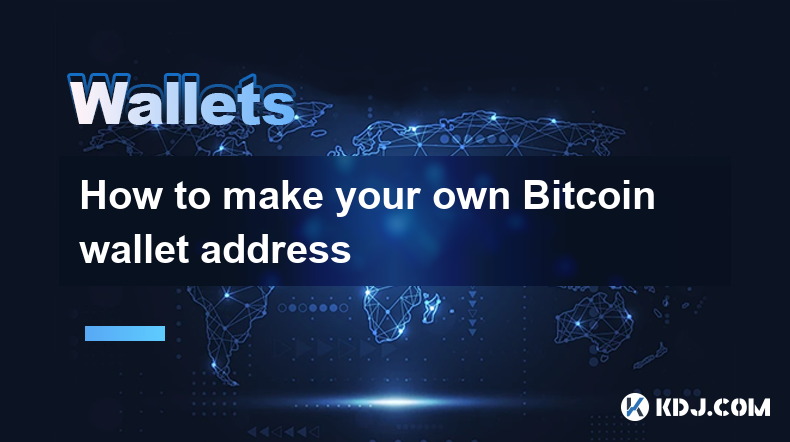
How to make your own Bitcoin wallet address
Mar 29,2025 at 08:42pm
Creating your own Bitcoin wallet address is crucial for securing and managing your Bitcoin holdings. It allows you to independently receive and send Bitcoin without relying on third-party services. This process involves understanding the different types of wallets and choosing the one that best suits your needs and technical expertise. Incorrectly gene...
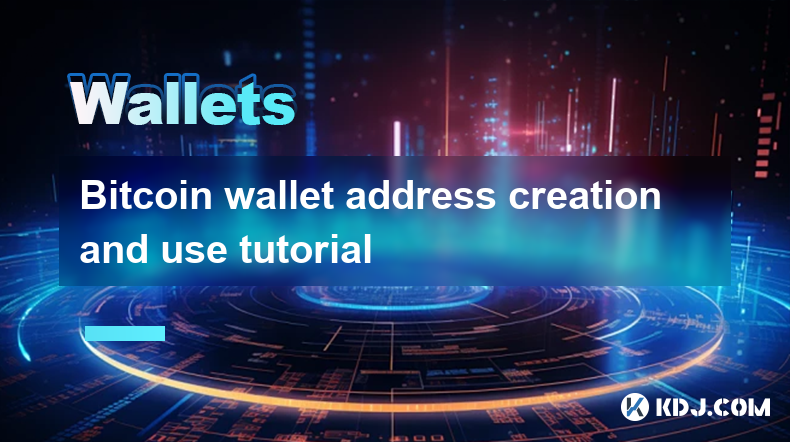
Bitcoin wallet address creation and use tutorial
Mar 29,2025 at 10:14pm
Understanding Bitcoin Wallet AddressesA Bitcoin wallet doesn't store Bitcoin in the way a traditional bank account does. Instead, it stores private keys, which are cryptographic secrets allowing you to access and spend your Bitcoin. Your Bitcoin address, on the other hand, is a public identifier, like an email address, that others can use to send you B...
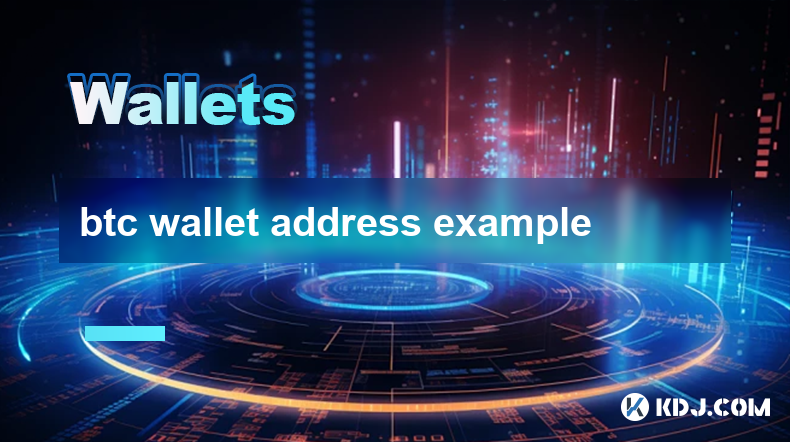
btc wallet address example
Mar 29,2025 at 04:35am
: A Deep Dive into Bitcoin AddressesBitcoin, the pioneering cryptocurrency, relies on a system of digital wallets and addresses for secure transaction management. Understanding Bitcoin wallet addresses is crucial for anyone interacting with the BTC network. This article will explore various aspects of BTC wallet addresses, providing examples and clarify...
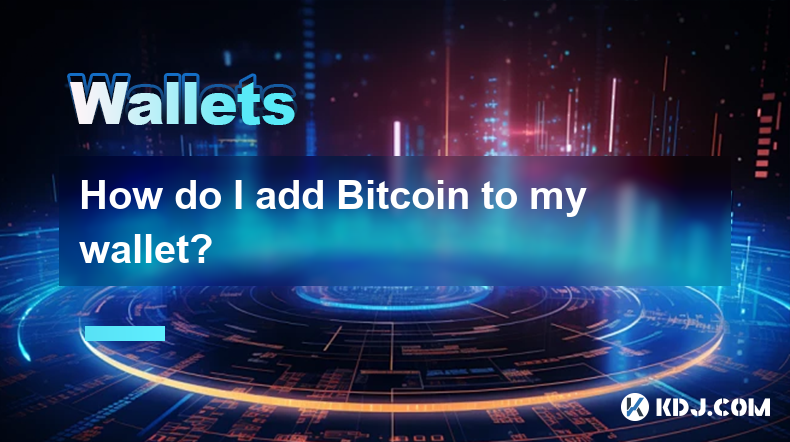
How do I add Bitcoin to my wallet?
Mar 29,2025 at 07:28am
Understanding Bitcoin Wallets and AddressesBefore adding Bitcoin to your wallet, it's crucial to understand what a Bitcoin wallet actually is. It's not a physical container, but rather a software program or hardware device that stores your private keys. These private keys are essential for accessing and controlling your Bitcoin. Your wallet also genera...
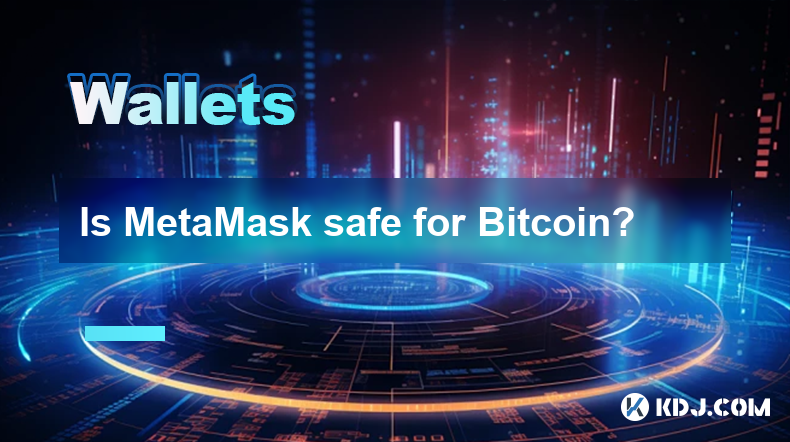
Is MetaMask safe for Bitcoin?
Mar 29,2025 at 06:22pm
MetaMask is a popular browser extension and mobile app that functions as a cryptocurrency wallet. While widely used for Ethereum and ERC-20 tokens, its suitability for Bitcoin requires careful consideration. This article explores the safety aspects of using MetaMask with Bitcoin, addressing common concerns and misconceptions. Understanding MetaMask's F...

How to easily generate a Bitcoin payment address
Mar 29,2025 at 10:49am
Generating a Bitcoin payment address might seem daunting, but it's actually quite straightforward. This process is crucial for receiving Bitcoin, as each transaction requires a unique address. Understanding how this works is fundamental to using Bitcoin effectively. This guide will walk you through the simple steps, regardless of your technical experti...

How to make your own Bitcoin wallet address
Mar 29,2025 at 08:42pm
Creating your own Bitcoin wallet address is crucial for securing and managing your Bitcoin holdings. It allows you to independently receive and send Bitcoin without relying on third-party services. This process involves understanding the different types of wallets and choosing the one that best suits your needs and technical expertise. Incorrectly gene...

Bitcoin wallet address creation and use tutorial
Mar 29,2025 at 10:14pm
Understanding Bitcoin Wallet AddressesA Bitcoin wallet doesn't store Bitcoin in the way a traditional bank account does. Instead, it stores private keys, which are cryptographic secrets allowing you to access and spend your Bitcoin. Your Bitcoin address, on the other hand, is a public identifier, like an email address, that others can use to send you B...

btc wallet address example
Mar 29,2025 at 04:35am
: A Deep Dive into Bitcoin AddressesBitcoin, the pioneering cryptocurrency, relies on a system of digital wallets and addresses for secure transaction management. Understanding Bitcoin wallet addresses is crucial for anyone interacting with the BTC network. This article will explore various aspects of BTC wallet addresses, providing examples and clarify...

How do I add Bitcoin to my wallet?
Mar 29,2025 at 07:28am
Understanding Bitcoin Wallets and AddressesBefore adding Bitcoin to your wallet, it's crucial to understand what a Bitcoin wallet actually is. It's not a physical container, but rather a software program or hardware device that stores your private keys. These private keys are essential for accessing and controlling your Bitcoin. Your wallet also genera...

Is MetaMask safe for Bitcoin?
Mar 29,2025 at 06:22pm
MetaMask is a popular browser extension and mobile app that functions as a cryptocurrency wallet. While widely used for Ethereum and ERC-20 tokens, its suitability for Bitcoin requires careful consideration. This article explores the safety aspects of using MetaMask with Bitcoin, addressing common concerns and misconceptions. Understanding MetaMask's F...
See all articles






















































































